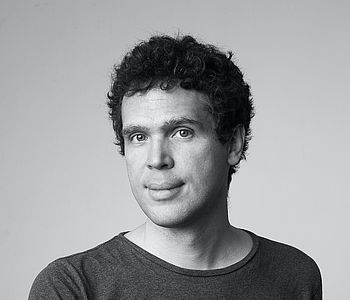Prof. Dr. Camille Roth | Researcher
Former Member
Home Institution
:
CNRS & EHESS
|
Position
:
Research professor in computer science and professor in sociology
|
Disciplines
:
Sociology
,
Computer science
|
Biography
Camille Roth has been holding a research professorship at CNRS since 2008 in computer science and is also professor in sociology at EHESS since 2023. Previously, he also had a couple of tenured university positions in sociology, at Sciences Po as Associate Professor (“professeur”, 2016-18) and in Toulouse as Assistant Professor (“maître de conférences”, 2007-08). His research thus lies at the interface between social and computational sciences, featuring keywords such as socio-semantic systems, social cognition, algorithms and mathematical sociology.
Director of CAMS (Centre d'Analyse et de Mathématique Sociales, a joint laboratory of CNRS and EHESS in Paris), he is also associated researcher at the Centre Marc Bloch, where he continues to lead the computational social science team that he founded in 2012 and where he supervises a team of several doctoral and post-doctoral researchers – broadly working on socio-semantic networks, the dynamics of public space (particularly in the context of online communities) and the modeling of complex social systems.
He is currently the recipient of an ERC Consolidator grant called Socsemics on socio-semantic networks and over the past decade has been global or local PI for several multi-institution research projects, both at the French and European level, on blog networks, scientific communities, and peer-to-peer platforms, including Webfluence, Algopol and Algodiv (on informational dynamics of the digital public space) and QLectives (EU IP on quality collectives in socio-technical communities). He has authored more than 70 peer-reviewed publications.
Researchtopic
Social sciences
Social networks, socio-semantic networks, digital public space, knowledge diffusion, epistemic communities, social cognition, online communities (blogs, wikis, forums, etc.), social science naturalization.
Formal sciences
Network dynamics, graph theory, pattern recognition, hypergraphs, complex system modeling, random graphs.
Projects
Co-responsible for the "Digital Humanities / Computational Social Sciences" team at Centre Marc Bloch.
Global PI of the ANR grant AlgoDiv (Information Diversity and Algorithmic Recommandation), 2016-19, also involving CAMS (CNRS-EHESS), LIP6 (CNRS-U. Paris 6), the sociology department of Orange Labs.
Past projects:
- Global PI of the ANR grant Webfluence on digital public space (2008-2010) with Orange Labs, LIP6 and Linkfluence.
- Global PI of the ANR grant AlgoPol (Politique des Algorithmes), 2012-15, "Contents and Interactions" program (other partners: Orange Labs, CAMS, LIAFA, Linkfluence)
- PI at CNRS of the European project QLectives (FP 7 - EU ICT) on quality collectives, 2009-2013 (main PI: Nigel Gilbert, U. Surrey, UK).
- PI at CNRS of the ANR grant SIMPA (2009-2012), on kinship networks (main PI: F. Héran, INED, other partner: CEMAf).